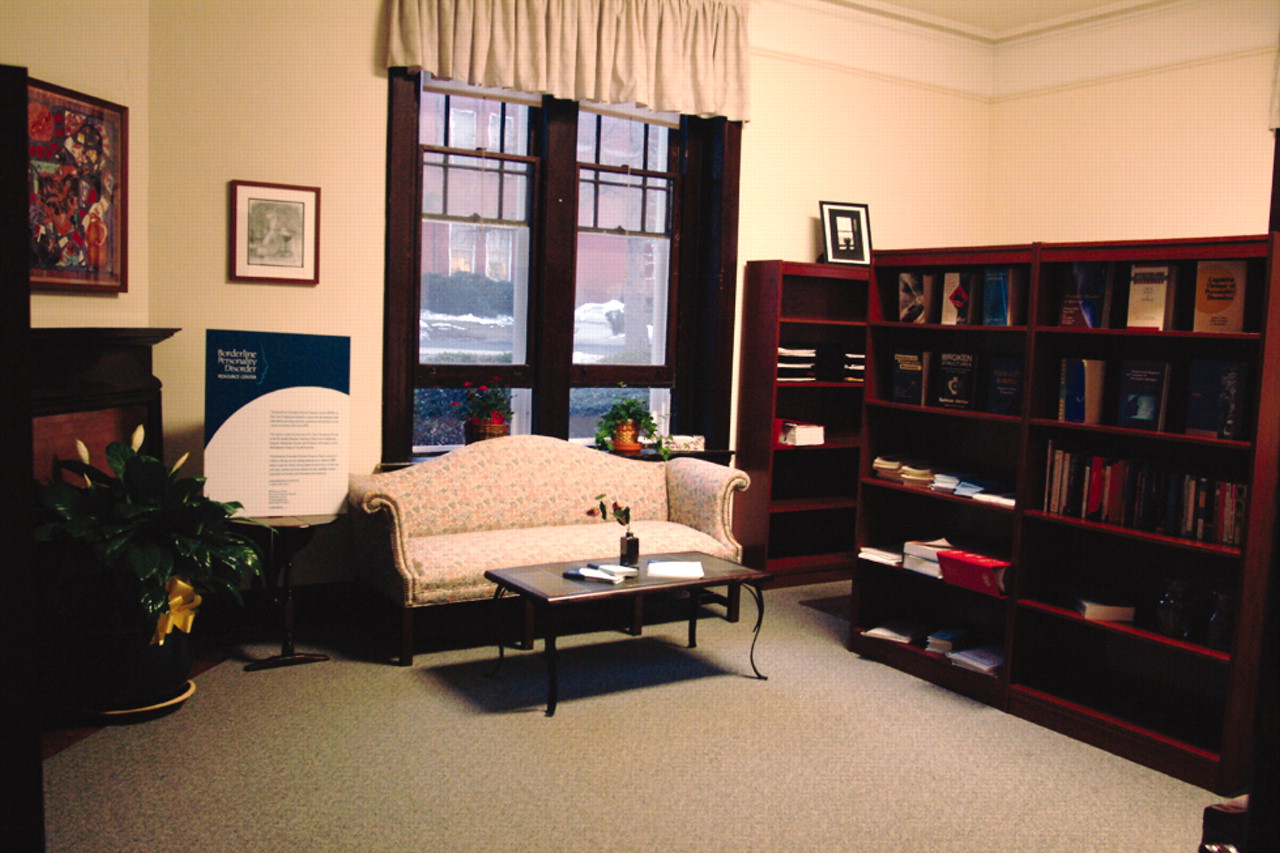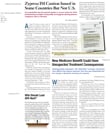People with borderline personality disorder and their families have at their disposal a wellspring of information about the causes, course, and treatment of the disorder through the Borderline Personality Disorder Resource Center (BPDRC).
Family members of people with borderline personality disorder established the center in late 2003 using private donations.
The resource center, which is affiliated with and located adjacent to the New York-Presbyterian Hospital–Westchester Division in White Plains, N.Y., also functions as a source of referrals for people seeking treatment for borderline personality disorder around the country.
“Through the resource center, we have been able to assist the many patients who call us for help in locating the best treatment available to them in their communities,” said the center's clinical director, Otto Kernberg, M.D., in an interview with Psychiatric News.
The center's referral database includes about 250 referral sources for those seeking treatment for borderline personality disorder. These include inpatient programs, outpatient programs, residential treatment centers, and individual practitioners.
In addition, the resource center houses a library of books on many aspects of borderline personality disorder, ranging from etiology and treatment to personal accounts written by people with the disorder.
Kernberg, who is also director of New York-Presbyterian Hospital's Personality Disorders Institute, pointed out that a large number of people with borderline personality disorder are misdiagnosed and therefore do not receive appropriate treatment.
Once they do receive the right diagnosis and treatment, they can achieve some level of stability and enjoy meaningful lives, he added.
Psychotherapeutic approaches that have been helpful to people with borderline personality disorder include dialectic-behavioral therapy, transference-focused psychotherapy (developed by Kernberg), cognitive-behavioral therapy, psychodynamic psychotherapy, and supportive psychotherapy.
According to information listed on the BPDRC Web site, pharmacological treatments “are often prescribed based on specific target symptoms” experienced by the patient. For instance, antidepressant drugs and mood stabilizers may alleviate depressed and/or labile mood, and antipsychotic drugs are used when thought distortion or anxiety is present.
Lithium is “sometimes helpful” and “may make it possible to use lower doses of other drugs,” the Web site notes.
Kernberg emphasized that “while we have become much better at treating patients with borderline personality disorder in recent years, that doesn't mean we are able to help everyone at all times.”
He also pointed out that the center does not endorse one type of therapy over another.
According to Eliza Whoriskey, M.A., administrative manager of the BPDRC, more than half of the calls coming into the center are from patients or family members looking for referrals to an expert in their area.
Since the center opened, Whoriskey said, there have been approximately 900 calls from patients, 720 calls from family members of patients, and 180 calls from mental health professionals seeking information about borderline personality disorder.
Whoriskey said she sometimes relies on the clinical expertise of Kernberg and his staff at the Personality Disorders Institute to field phone inquiries.
Inquiries can also be made in person or via e-mail, but the vast majority of inquiries come through the center's toll-free number, according to Whoriskey. She will be staffing a booth about the center at APA's 2005 annual meeting next month in Atlanta.
In addition to disseminating up-to-date information to the public, the center has plans to award those who have demonstrated outstanding achievement in borderline personality disorder clinical work or research.
The awardee will receive $5,000, a plaque, and a presentation dinner in his or her honor.
More information about the Borderline Personality Disorder Resource Center and its first annual Award for Distinguished Achievement is posted online at<www.bpdresourcecenter.org>.▪

